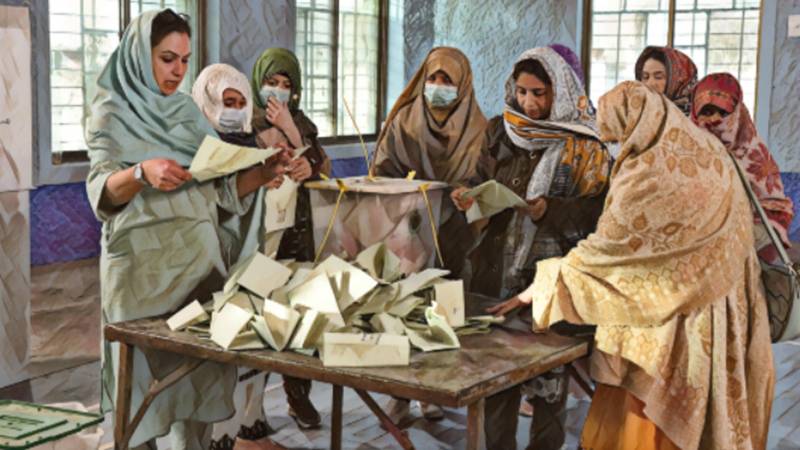
Electoral politics in Pakistan is undergoing enormous changes and a new factor is redefining the electoral landscape of Pakistan. Since 2018 the biggest factor that seems to play decisive role in electoral outcome in both general and by-elections in Punjab is the anger, people feel against military’s meddling in politics.
Historically, in urban Punjab, three factors—party affiliation, anti-incumbency, and the likelihood of a party to form a government or wave—have played a significant role in shaping voting behaviour. Meanwhile, in rural Punjab, four factors—party affiliation, likelihood of a party to form a government, anti-incumbency, and the candidate or faction—have been crucial in influencing voting behaviour.
In his landmark study from the 1990s on voting behaviour in Punjab, Andrew Wilder found that the most significant factor influencing voters in urban Punjab was party loyalty, while in rural areas, voters were swayed by the likelihood of a political party forming the government driven by patronage considerations. The likelihood of a party forming the government largely depended on the perceived support from establishment.
The results of the 2018 and 2024 general elections, and by-elections between these years, suggest that another factor has entered in the voting behaviour in Punjab, and that is the anti-establishment factor. This factor seems to have outweighed all the other factors previously considered important.
Due to the patronage-based political system, it is generally believed that by-elections are usually won by the party in government. But this pattern has completely been reversed since 2018
The first clear indication in this regard came with the election results of 2018. PML-N is largely based in Punjab and from 2013 to 2018, it was in government both at federal level and at provincial level in Punjab. The Establishment played every card in its glove to manipulate results against PML-N and in favour of PTI. The anti-incumbency factor was also against PML-N. Nawaz Sharif was disqualified, subsequently convicted. Its government in Baluchistan was toppled, Its MPs from south Punjab formed a separate group to join PTI, its candidates were abducted and its leadership was banned from appearing on TV. There are also widespread reports of post poll rigging.
Despite everything, PML-N emerged as the largest party in the Province of Punjab by securing 129 seats out of 296 directly contested seats. PTI came second with 123 seats. 30 seats were won by independents and later out of those 30, 24 went to join PTI as a result of both incentive and coercion.
Due to the patronage based political system, it is generally believed that by-elections are usually won by the party in government, but this pattern has completely been reversed since 2018. PTI, which was on the right side of establishment during its tenure of 2018 to 2022, lost 11 out of 12 by-elections to PML-N. In one election in February 2021 in Daska, Punjab, 20 presiding officers ‘disappeared’ after the vote counting. They were alleged to be abducted by PTI to manipulate election result, but despite that, PML-N won that seat too.
Things started taking a different turn for PTI when PDM brought a vote of no confidence against PTI in April 2022 with the support of the establishment. One of the spearheads of PDM, Maulana Fazal -ur-Rehman has recently claimed that they brought vote of no confidence at the demand of the then army chief, General Qamar Javed Bajwa.
After April 2022, the Pakistan Tehreek-e-Insaf (PTI) emerged as a new "anti-establishment" party. In the by-elections held in July 2022, a mere three months after being ousted from government, PTI secured a remarkable victory by winning 15 out of 20 seats in the Punjab Provincial Assembly. Subsequently, in the October 2022 by-elections, PTI continued its success by winning 6 out of 8 seats in the National Assembly. Out of 8 seats of national assembly, Imran khan was himself the candidate on 7 seats. People voted for him overwhelmingly despite knowing the fact very well that he would not be able to retain any of those seats and will never dole out any services to his constituents. This turn of events was particularly noteworthy given that just a few months prior, PTI had struggled to win any seats, and its members of parliament were reportedly seeking to join the PML-N.
February 2024 elections were a sequel of 2018 elections, only difference was that the rigging was more blatant, naked and on a higher scale this time. Every effort was made before elections to disillusion the voters generally and especially the PTI voters. PTI’s election symbol, BAT, was snatched away, its people were abducted in large numbers, hardly any of its candidates were freely allowed to campaign and their leader was convicted four time in multiple cases.
Against all odds, people voted massively in favour of PTI, the party which was on the wrong side of establishment this time. According to the results televised on leading TV channels till 8 pm election day, PTI was leading on 130 seats and PML-N was leading only on 50 seats. After that results became very slow.
To my first hand information based on the comparison of form 45 and 47, out of the 15 national assembly seats of Rawalpindi division and Islamabad, 12 seats were rigged against PTI and in favour of PML-N.
In the last 30 years, electoral politics of Pakistan has undergone a demographic and qualitative shift. In contrast to electoral politics between 1990 to 2013, support of establishment was a boon for a political party to win the elections; however, since 2018, it has become the biggest liability.
For 75 years, politics in Pakistan has been dominated by the civil and military establishment, with common people having little or no influence in the system. Since 2018, people have consistently demonstrated that they are no longer willing to accept the rule of the establishment. The pressing question now is whether there will emerge a political party capable of capitalising on this newly established reality in Pakistani politics and establish genuine democracy and people’s rule?

